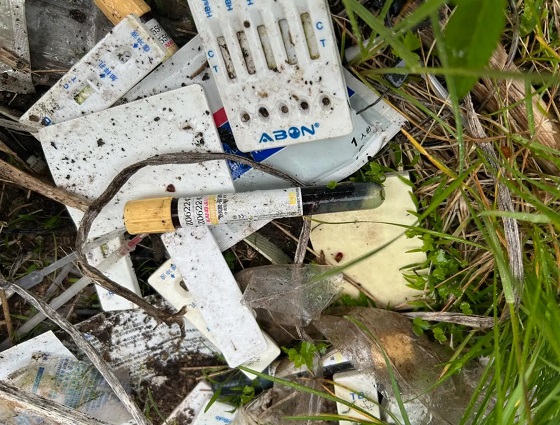Alberta
Nancy Southern has the skills and experience to help Alberta find its way forward

Nancy C. Southern is one of the heavy hitters tasked with helping us find our way forward from the economic downturn in the energy industry and the devastating impact of the Covid-19 Pandemic.
Southern is Chair & Chief Executive Officer of ATCO Ltd., as well as Chair of Canadian Utilities Limited (an ATCO company). Reporting to the Board of Directors, she has full responsibility for executing the strategic direction and ongoing operations.
She joined the ATCO Board of Directors in 1989, was named President & Chief Executive Officer of ATCO in 2003 and was appointed Chair in December 2012. She also serves on the boards of the majority of ATCO subsidiary companies. Ms. Southern is a founding director of AKITA Drilling Ltd., a director of Sentgraf Enterprises Ltd., and Executive Vice President of Spruce Meadows.
Born and raised in Calgary, Southern studied Economics and Commerce at the University of Calgary.
During her career, she has served many roles with some of the world’s most prestigious organizations. Southern is a member on the, Canadian Advisory Council for Promoting Women on Boards, C.D. Howe Institute, American Society of Corporate Executives, Canadian Member Trilateral Commission, Business Council of Canada, also on Canada’s Advanced Manufacturing Economic Strategy Table, University of Calgary School of Public Policy Advisory Council and the U.S. Business Council.
In addition to her business leadership, Southern has long played a leading role in advocating on social issues of global importance – most notably, the rights of Indigenous peoples and the role of women in business.

Honorary Chief of the Kainai (Blood Tribe of Alberta)
In 2012, she was made an Honorary Chief of the Kainai (Blood Tribe of Alberta), was given the name Aksistoowa’paakii, or Brave Woman. Southern is also a board member at the Pension Fund Society of Bank of Montreal, Rideau Hall Foundation and was indicted in the Canadian Business Hall of Fame 2017, received the Canadian Business Leader Award from the University of Alberta in 2018, was honoured as Distinguished Policy Fellow by the University of Calgary’s School of Public Policy, named to the Fortune’s list of the “50 Most Powerful Women” outside of the U.S., 50 Most Important People in Canada in Maclean’s Magazine, Financial Post Magazine’s “The Power List” and to Alberta Venture’s Alberta’s Business Person of the Year for 2011.
Here are the members of the committee.
- Jack Mintz, chair
- Clive Beddoe – former chair, president and CEO, WestJet
- Robert Blakely
- Brent Belzberg – founder and senior managing partner, TorQuest Partners
- Bob Dhillon – founder, president and CEO, Mainstreet Equity Corporation
- Chris Fowler – president and CEO, Canadian Western Bank
- Rt. Hon. Stephen Harper – Canada’s 22nd prime minister
- Peter Kiss – owner and president, Morgan Construction and Environmental
- Zainul Mawji – president, Telus Home Solutions
- Nancy Southern – chair and CEO, ATCO Ltd.
- Kevin Uebelein – CEO, AIMCo
- Mac Van Wielingen – founder, ARC Financia
Dr. Jack M. Mintz heads up Alberta Economic Recovery Council
Alberta
Upgrades at Port of Churchill spark ambitions for nation-building Arctic exports

In August 2024, a shipment of zinc concentrate departed from the Port of Churchill — marking the port’s first export of critical minerals in over two decades. Photo courtesy Arctic Gateway Group
From the Canadian Energy Centre
By Will Gibson
‘Churchill presents huge opportunities when it comes to mining, agriculture and energy’
When flooding in northern Manitoba washed out the rail line connecting the Town of Churchill to the rest of the country in May 2017, it cast serious questions about the future of the community of 900 people on the shores of Hudson Bay.
Eight years later, the provincial and federal governments have invested in Churchill as a crucial nation-building corridor opportunity to get resources from the Prairies to markets in Europe, Africa and South America.
Direct links to ocean and rail

Aerial view of the Hudson Bay Railway that connects to the Port of Churchill. Photo courtesy Arctic Gateway Group
The Port of Churchill is unique in North America.
Built in the 1920s for summer shipments of grain, it’s the continent’s only deepwater seaport with direct access to the Arctic Ocean and a direct link to the continental rail network, through the Hudson Bay Railway.
The port has four berths and is capable of handling large vessels. Having spent the past seven years upgrading both the rail line and the port, its owners are ready to expand shipping.
“After investing a lot to improve infrastructure that was neglected for decades, we see the possibilities and opportunities for commodities to come through Churchill whether that is critical minerals, grain, potash or energy,” said Chris Avery, CEO of the Arctic Gateway Group (AGG), a partnership of 29 First Nations and 12 remote northern Manitoba communities that owns the port and rail line.
“We are pleased to be in the conversation for these nation-building projects.”
In May, Canada’s Western premiers called for the Prime Minister’s full support for the development of an economic corridor connecting ports on the northwest coast and Hudson’s Bay, ultimately reaching Grays Bay, Nunavut.
Investments in Port of Churchill upgrades
AGG, which purchased the rail line and port from an American company in 2017, is not alone in the bullish view of Churchill’s future.
In February, Manitoba Premier Wab Kinew announced an investment of $36.4 million over two years in infrastructure projects at the port aimed at growing international trade.
“Churchill presents huge opportunities when it comes to mining, agriculture and energy,” Kinew said in a release.
“These new investments will build up Manitoba’s economic strength and open our province to new trading opportunities.”
In March, the federal government committed $175 million over five years to the project including $125 million to support the rail line and $50 million to develop the port.
“It’s important to point out that investing in Churchill was something that both the Liberal and Conservative parties agreed on during the federal election campaign,” said Avery, a British Columbian who worked in the airline industry for more than two decades before joining AGG.
Reduced travel time
The federal financial support helped AGG upgrade the rail line, repairing the 20 different locations where it was washed out by flooding in 2017.
Improvements included laying more than 1,600 rail cars worth of ballast rock for stabilization and drainage, installing almost 120,000 new railway ties and undertaking major bridge crossing rehabilitations and switch upgrades.
The result has seen travel time by rail reduced by three hours — or about 10 per cent — between The Pas and Churchill.
AGG also built a dedicated storage facility for critical minerals and other commodities at the port, the first new building in several decades.
Those improvements led to a milestone in August 2024, when a shipment of zinc concentrate was shipped from the port to Belgium. It was the first critical minerals shipment from Churchill in more than two decades.
The zinc concentrate was mined at Snow Lake, Manitoba, loaded on rail cars at The Pas and moved to Churchill. It’s a scenario Avery hopes to see repeated with other commodities from the Prairies.
Addressing Arctic challenges
The emergence of new technologies has helped AGG work around the challenges of melting permafrost under the rail line and ice in Hudson Bay, he said.
Real-time ground-penetrating radar and LiDAR data from sensors attached to locomotives can identify potential problems, while regular drone flights scan the track, artificial intelligence mines the data for issues, and GPS provides exact locations for maintenance.
The group has worked with permafrost researchers from the University of Calgary, Université Laval and Royal Military College to better manage the challenge. “Some of these technologies, such as artificial intelligence and LiDAR, weren’t readily available five years ago, let alone two decades,” Avery said.
On the open water, AGG is working with researchers from the University of Manitoba to study sea ice and the change in sea lanes.
“Icebreakers would be a game-changer for our shipping operations and would allow year-round shipping in the short-term,” he said.
“Without icebreakers, the shipping season is currently about four and a half months of the year, from April to early November, but that is going to continue to increase in the coming decades.”
Interest from potential shippers, including energy producers, has grown since last year’s election in the United States, Avery said.
“We’re going to continue to work closely with all levels of government to get Canada’s products to markets around the world. That’s building our nation. That’s why we are excited for the future.”
Alberta
OPEC+ is playing a dangerous game with oil

This article supplied by Troy Media.
OPEC+ is cranking up oil supply into a weak market. It’s tried this strategy before, and it backfired
OPEC+ is once again charging headfirst into a market share war—a strategy that has repeatedly ended in disaster. Despite weak global demand, falling prices and rising output from non-OPEC countries, the cartel has chosen to flood the market. History shows this tactic rarely ends well for
OPEC+ or oil producers worldwide, including Canada.
OPEC+, a group of major oil-exporting countries led by Saudi Arabia and Russia, works together to manage global oil supply and influence prices. Its decisions have far-reaching consequences for the global energy market—including for Canadian oil producers.
Last Saturday, eight leading members of OPEC+ announced, after a virtual meeting, that they would increase production by 548,000 barrels per day starting in August. That is significantly more than the group’s recent additions of 411,000 bpd, and it puts them on track to fully unwind their
previous 2.2 million bpd in cuts a full year ahead of schedule.
It is a bold move, but it comes at a questionable time.
There is little geopolitical premium built into current oil prices, and the global market is already oversupplied. Brent crude futures are down more than six per cent so far this year. Analysts estimate inventories have been climbing by a million barrels per day in 2025 due in part to cooling demand in China and rising output from countries outside OPEC.
S&P Global Commodity Insights forecasts a supply surplus of 1.25 million barrels per day in the second half of the year. Brent crude stood at about US$68 per barrel on Friday, but S&P says it could fall to between US$50 and $60 later this year and into 2026. West Texas Intermediate, the U.S. benchmark, is also at risk of dropping below US$50 per barrel.
Canada is the world’s fourth-largest oil producer, with most of its output coming from Alberta’s oil sands. Though Canadian producers have higher costs than some OPEC+ members, their innovation and access to U.S. markets have made them increasingly competitive.
While the seasonal demand boost might justify a modest increase, OPEC+, especially Saudi Arabia, appears primarily motivated by market share concerns. With U.S. shale and countries like Canada, Kazakhstan and Guyana gaining ground, the cartel is falling back on its old tactic of flooding the market to squeeze out competitors.
Some observers, including Stanley Reed in The New York Times, have suggested that the move may be designed to please U.S. President Donald Trump, who “has made courting Saudi Arabia and regional allies like the United Arab Emirates a priority of his foreign policy.” But even geopolitical gamesmanship has not shielded OPEC+ from the consequences before—and likely will not this time either.
Back in 2014, fed up with the U.S. shale boom, OPEC opened the taps. The goal was to drive prices low enough to force out higher-cost producers. Instead, oil plunged into the US$30 range. According to the World Bank, the 70 per cent drop during that period was one of the three biggest oil crashes since the Second World War and the most prolonged since the supply-driven collapse of 1986. Saudi Arabia’s respected oil minister, Ali Al-Naimi, lost his job in the aftermath.
Then, in April 2020, as the COVID-19 pandemic loomed, OPEC and Russia launched a production war that sent oil prices into freefall, briefly into negative territory. Trump had to broker a ceasefire to rescue the U.S. shale industry, forcing Riyadh and Moscow to pull back. Both sides suffered significant economic damage.
For Canada, especially Alberta, the current fallout could be severe. The province is home to most of the country’s oil sands production. Cheaper global crude undercuts Canadian prices, squeezes royalty revenues, chills investment and puts jobs at risk across Canada. And this comes as governments are already grappling with fiscal pressures.
The oil market does not reward short-term thinking. If OPEC+ continues down this road, history suggests the outcome will be painful for them and the rest of us.
Toronto-based Rashid Husain Syed is a highly regarded analyst specializing in energy and politics, particularly in the Middle East. In addition to his contributions to local and international newspapers, Rashid frequently lends his expertise as a speaker at global conferences. Organizations such as the Department of Energy in Washington and the International Energy Agency in Paris have sought his insights on global energy matters.
Troy Media empowers Canadian community news outlets by providing independent, insightful analysis and commentary. Our mission is to support local media in helping Canadians stay informed and engaged by delivering reliable content that strengthens community connections and deepens understanding across the country
-

 COVID-192 days ago
COVID-192 days agoSen. Rand Paul: ‘I am officially re-referring Dr. Fauci to the DOJ’
-

 Education2 days ago
Education2 days agoTrump praises Supreme Court decision to allow dismantling of Department of Education
-

 Business2 days ago
Business2 days agoConservatives demand probe into Liberal vaccine injury program’s $50m mismanagement
-

 International1 day ago
International1 day agoMatt Walsh slams Trump administration’s move to bury Epstein sex trafficking scandal
-

 National1 day ago
National1 day agoDemocracy Watch Blows the Whistle on Carney’s Ethics Sham
-

 Energy1 day ago
Energy1 day agoIs The Carney Government Making Canadian Energy More “Investible”?
-

 Immigration22 hours ago
Immigration22 hours agoUnregulated medical procedures? Price Edward Islanders Want Answers After Finding Biomedical Waste From PRC-Linked Monasteries
-

 Business22 hours ago
Business22 hours agoDemocracy Watchdog Says PM Carney’s “Ethics Screen” Actually “Hides His Participation” In Conflicted Investments










